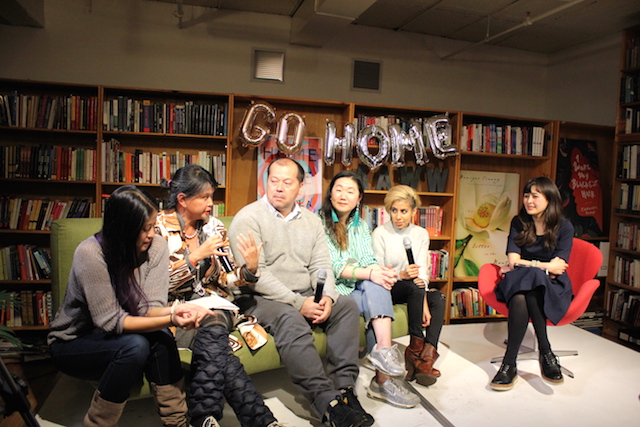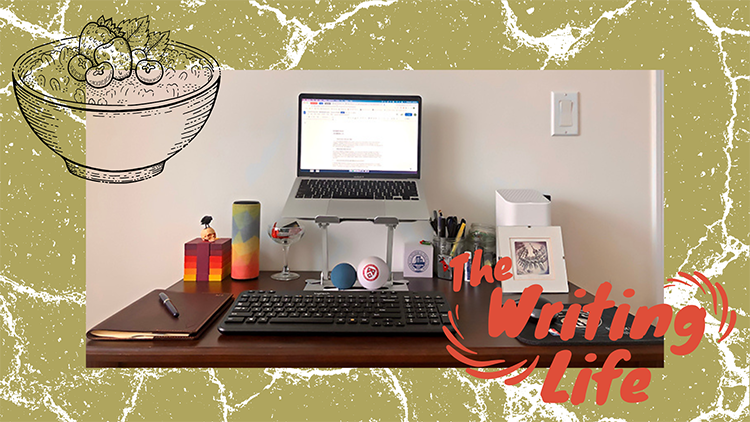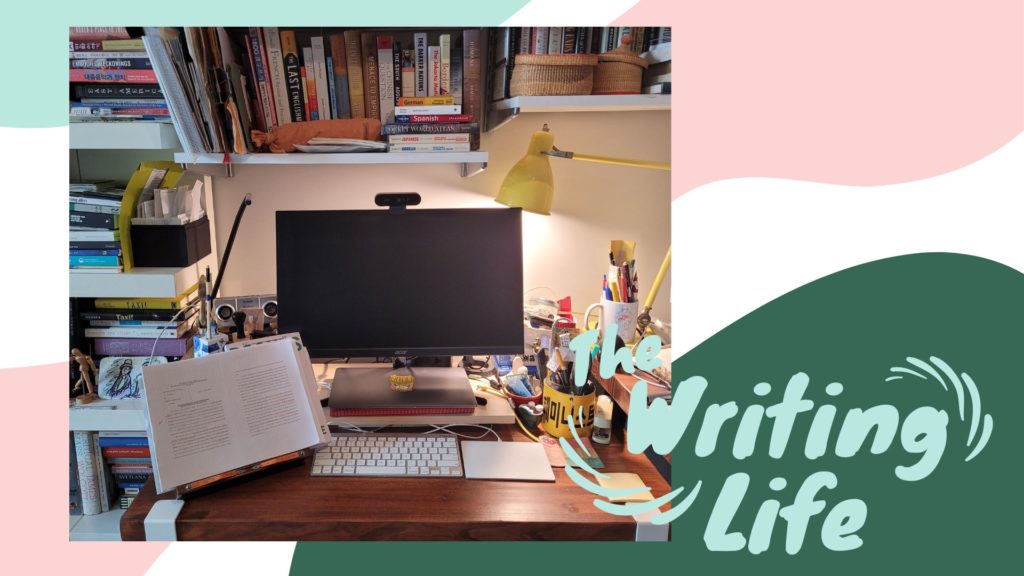Former Open City Fellow Chaya Babu answers 10 questions about her writing life
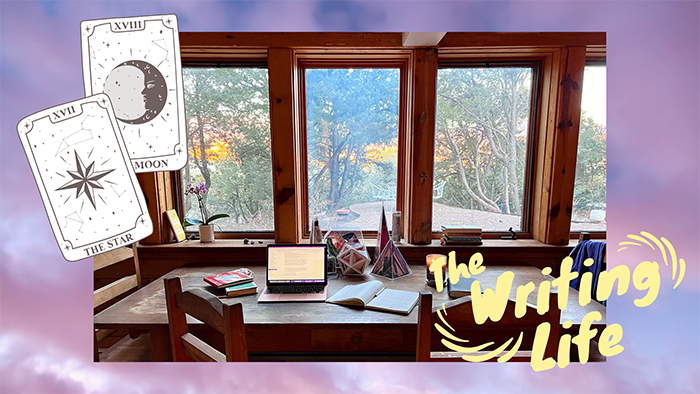
February 10, 2022
“Writing is easy,” Pulitzer Prize-winning sportswriter Red Smith once said. “All you do is sit down at a typewriter and open your veins, and bleed.”
Putting pen to paper (or fingers to a keyboard) is never a simple task, even for seasoned writers. Even our Margins and Open City Fellows–and there’s quite a handful of them–can attest to that. Many of them, though, have gone on to write and report for mainstream publications and publish books.
In this series, we reached out to our former fellows and asked them to give us a glimpse of their writing lives and to share some tips on how they navigate this creative process called writing.
Chaya Babu was an Open City Fellow in 2015–2016 and covered the South Asian American community. In “A Stranger in Our Midst,” she tells the story of how her writing group was robbed at gunpoint while having a workshop in a Brooklyn café, and her apprehension over subsequent harsh police and community reaction to the incident. “Who owns public space?” she asks in her 2016 story, “Men Loiter, Women Cloister,” about how young South Asian women in Brooklyn struggle with the culture that dictates that women have no business outside the home.
Here’s Chaya.
—Noel Pangilinan
□ □ □ □ □
1. What’s on your nightstand?
I love this because I didn’t have a nightstand before, but I just moved—to Santa Fe, literally five days ago, and I have one now. Currently: earplugs, a small globe lamp, the Tarot de St. Croix deck, a crinkly aluminum tube of hand cream (it’s dry here!), sage mist gifted by a friend, my journal and pen, and a copy of Stranger Faces by Namwali Serpell. I haven’t started reading it just yet, but I’m excited to.
2. How do you start your day? What’s a typical day for you?
I lie in bed for a long time. I feed the cats. I pull a card or a few. I check my phone to my detriment. I don’t have a typical day, which is how I like it, but part of this move to a slower and quieter place is definitely the intention to keep to a few specific rituals. Reading more, breathing more. Maybe walks in the arroyo in my new neighborhood.
3. Coffee or tea? Why?
Walking to the bodega on Church Avenue in Brooklyn for coffee used to be part of my late morning ritual, but I’m definitely a tea person at heart, and always return to that. I think because I’m Indian. If I could have multiple cups of masala chai a day, I would.
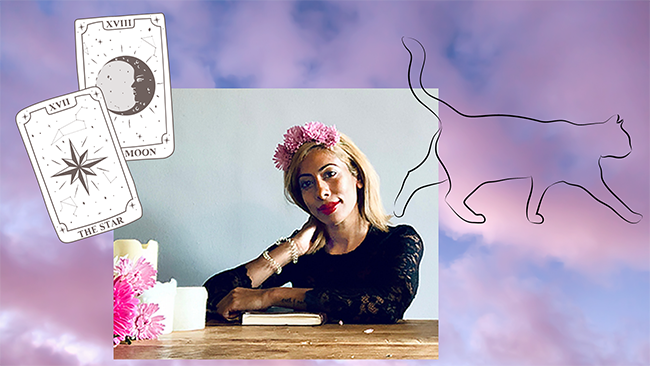
4. Any book you’re reading now? Any podcasts you’re listening to now?
I’ve been slowly making my way through The Right to Sex by Amia Srinivasan. I only have the last essay left. For weeks, I’ve been taking pictures of whole pages and posting them on my Instagram because I read passage after passage and am underlining everything, needing everyone I know to get a chance to glimpse her analyses. I find her brilliant; she basically speaks directly to the politics and issues I’ve been thinking about through so much of my adulthood as a woman, especially in this time.
On my cross-country drive last week, I listened to Sweet Bobby, recommended by a friend, about a case of catfishing and coercive control. At this exact moment I’m listening to an interview with Tricia Hersey on an episode of For The Wild. The Nap Ministry is my jam right now. They’re doing really radical work around rest as resistance to capitalism and white supremacy. I will promote their messaging every chance I get!
5. When do you write best?
I’ve realized I’m an obsessive writer, and I have ebbs and flows. When I’m writing, it’s all day almost, or every chance I get. When I’m not, I’m kind of just not. I’m finally okay with that, I think. Or still, even in those phases of writing fallow, maybe it’s always happening; I’m never without a notebook or at least my Notes app in my phone. The one thing I will say is that as I get older, the late-night writing is not so much of a thing anymore.
6. How and where do you get ideas for your stories?
Watching the world and people. But more so actually my feelings. My triggers. Whatever gets a rise out of me, I know there’s something there that isn’t just about my own s_ _t. Figuring out what that thing is may be an entirely different process. But it typically starts with that noticing that I’m experiencing a charge. That’s life force. There’s a story there.
7. Do you have any tips for interviewing people?
Staying present. Intuition is my main tool. Trusting that I don’t know what the story is, but if I listen and let go of my preconceived ideas of what I wanted to find, I will stumble upon it with patience.
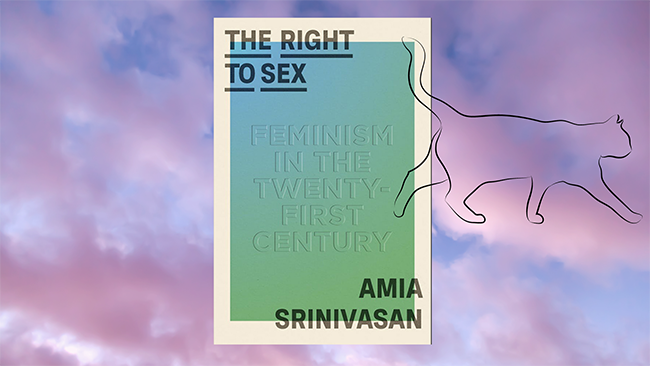
8. How do you deal with writer’s block?
I surrender. I’m not the kind of writer who can push through by just writing any words or trying to discipline myself. I think because, based on whatever conditioning I have around the concept of pausing or not-doing, the belief that I should keep going feels linked to harshness or a punitive energy. So, I tune into my body and typically glean that it needs rest, pleasure, or something else seemingly unrelated to writing (hint: it’s not!).
If I’m honest, I’ve felt like I’ve been in a years-long block. I don’t know what it means for the future, but I will say that believing in the notion of completion and then regeneration feels more important to me right now than actively writing in and of itself.
9. What are you working on now and what recent work are you proud of?
In spite of what I noted above, I did work on an essay this summer that felt like a massive release of whatever had been incubating in me for a long time, perhaps creating the aforementioned block. Like a dam bursting; it was a beautiful experience. Godly almost. But that still doesn’t mean that the creativity is now flowing. I’m sort of still processing that writing. I also have a piece forthcoming in Cosmonauts Avenue. Other than that, I’m not working on anything right now. I’m going to see what strikes me in my new terrain.
10. What’s your fondest memory of being an AAWW Fellow?
The walking tours through our respective neighborhoods for sure. I remember going to the gurudwaras in Richmond Hill. And to Greenwood Cemetery. Lots of chai all around. I loved my cohort; I love watching where they are now.
□ □ □ □ □
You may also be interested in these related stories:

